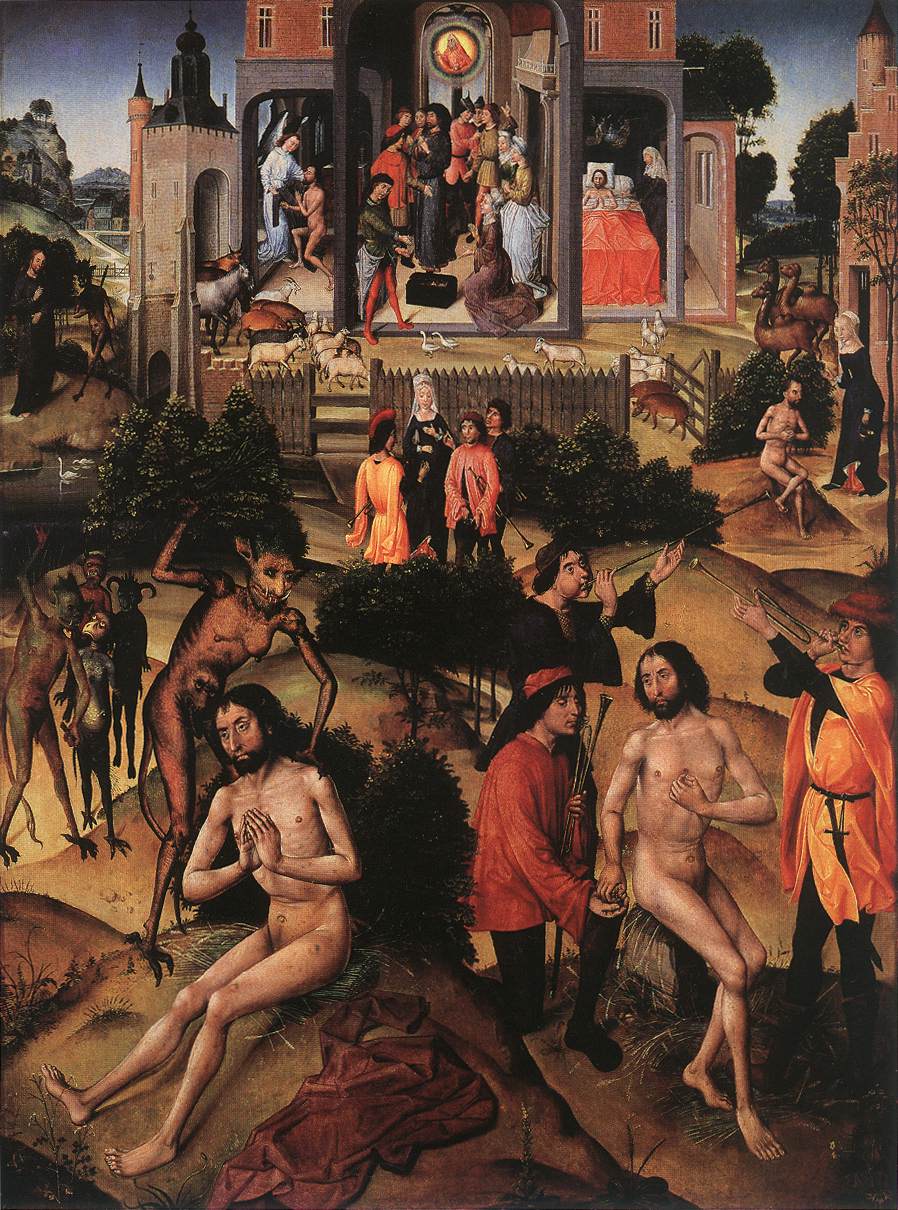
Chapter 22 (Wednesday of the Third Week of Lent)
Then Eliphaz the Temanite answered:
‘Can a mortal be of use to God?
Can even the wisest be of service to him?
Is it any pleasure to the Almighty if you are righteous,
or is it gain to him if you make your ways blameless?
Is it for your piety that he reproves you,
and enters into judgement with you?
Is not your wickedness great?
There is no end to your iniquities.
For you have exacted pledges from your family for no reason,
and stripped the naked of their clothing.
You have given no water to the weary to drink,
and you have withheld bread from the hungry.
The powerful possess the land,
and the favoured live in it.
You have sent widows away empty-handed,
and the arms of the orphans you have crushed.
Therefore snares are around you,
and sudden terror overwhelms you,
or darkness so that you cannot see;
a flood of water covers you.
‘Is not God high in the heavens?
See the highest stars, how lofty they are!
Therefore you say, “What does God know?
Can he judge through the deep darkness?
Thick clouds enwrap him, so that he does not see,
and he walks on the dome of heaven.”
Will you keep to the old way
that the wicked have trod?
They were snatched away before their time;
their foundation was washed away by a flood.
They said to God, “Leave us alone”,
and “What can the Almighty do to us?”
Yet he filled their houses with good things—
but the plans of the wicked are repugnant to me.
The righteous see it and are glad;
the innocent laugh them to scorn,
saying, “Surely our adversaries are cut off,
and what they left, the fire has consumed.”
‘Agree with God, and be at peace;
in this way good will come to you.
Receive instruction from his mouth,
and lay up his words in your heart.
If you return to the Almighty, you will be restored,
if you remove unrighteousness from your tents,
if you treat gold like dust,
and gold of Ophir like the stones of the torrent-bed,
and if the Almighty is your gold
and your precious silver,
then you will delight in the Almighty,
and lift up your face to God.
You will pray to him, and he will hear you,
and you will pay your vows.
You will decide on a matter, and it will be established for you,
and light will shine on your ways.
When others are humiliated, you say it is pride;
for he saves the humble.
He will deliver even those who are guilty;
they will escape because of the cleanness of your hands.’
Commentary
The innocent will be saved, but he will be saved by the cleanness of his hands. This opinion of Eliphaz, if it is said concerning the reward of the kingdom of heaven, is supported by truth, in that it is written concerning God, He renders to every man according to his deeds. The justice of the eternal Judge saves that person in the last judgement, his mercy sets him free from impure deeds. But if the person we are talking about is supposed to be saved by the cleanness of his own hands, so that by his own powers he should be made innocent, then assuredly it is an error. For if grace from above does not come before the sinner, assuredly it will never find anyone faultless to reward for being without fault. It is said by the truthful voice of Moses, And no man of himself is innocent in your sight. So, heavenly pity first works something in us without our help, so that our own free will might follow as well, and it is by this means that the good which we now desire may be accomplished. Yet the good that is given us by grace is, in the last judgement, rewarded by God as if it had come only from ourselves. (St. Gregory the Great, Moralia on Job)
Musical Selection (John W. Chadwick)
Eternal Ruler of the ceaseless round
of circling planets singing on their way;
guide of the nations from the night profound
into the glory of the perfect day;
rule in our hearts, that we may ever be
guided and strengthened and upheld by thee.
We are of thee, the children of thy love,
the brothers of thy well-belovèd Son;
descend, O Holy Spirit, like a dove,
into our hearts, that we may be as one:
as one with thee, to whom we ever tend;
as one with him, our Brother and our Friend.
We would be one in hatred of all wrong,
one in our love of all things sweet and fair,
one with the joy that breaketh into song,
one with the grief that trembles into prayer,
one in the power that makes thy children free
to follow truth, and thus to follow thee.
O clothe us with thy heavenly armour, Lord,
thy trusty shield, thy sword of love divine;
our inspiration be thy constant word;
we ask no victories that are not thine:
give or withhold, let pain or pleasure be;
enough to know that we are serving thee.
Collect
God of wisdom,
throughout these forty days you instruct your people
and nourish them with your word of life.
Teach us through self-denial to bind our hearts to your service
and make us one through constant prayer.
We ask this through our Lord Jesus Christ, your Son,
who lives and reigns with you in the unity of the Holy Spirit,
God for ever and ever. Amen.